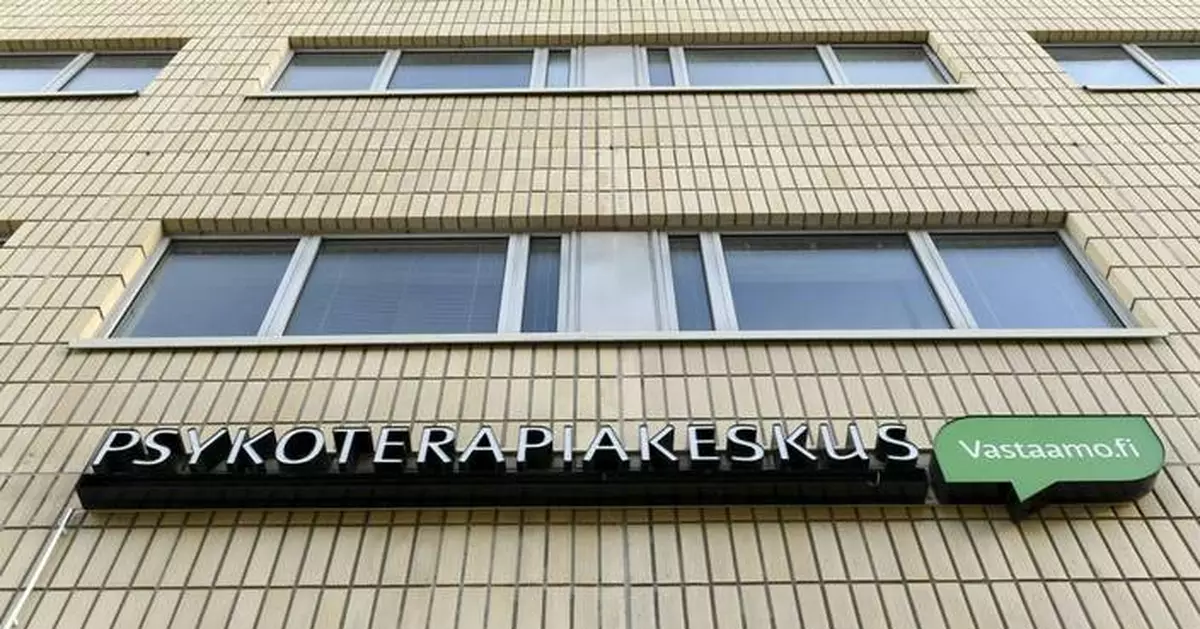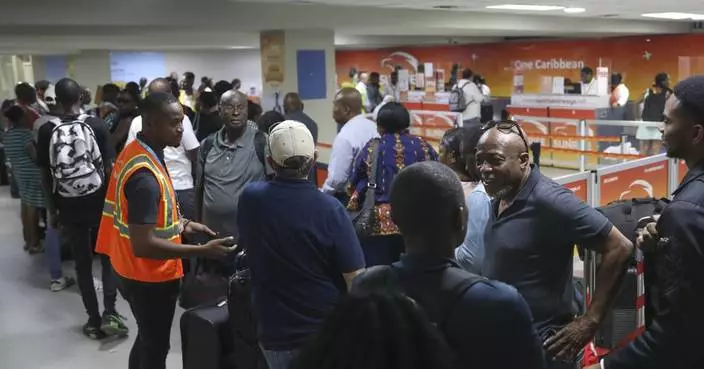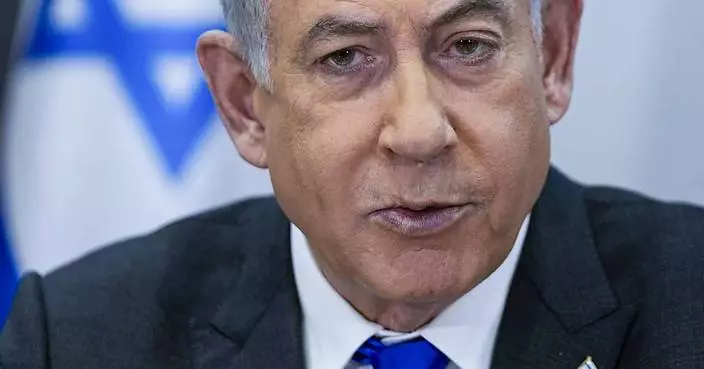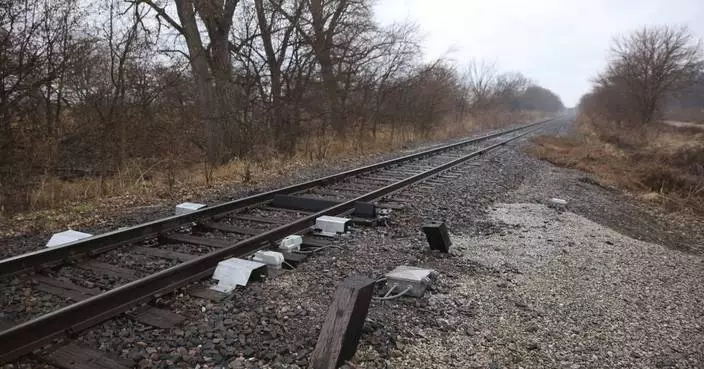HELSINKI (AP) — A Finnish court on Tuesday sentenced a 26-year-old man to six years and three months in prison for hacking tens of thousands of patient records at a private psychotherapy center and seeking ransom from some patients over the sensitive data.
The case that was initially revealed in October 2020, has caused outrage and shock in the Nordic nation, with a record number of people — about 24,000 — filing criminal complaints with police.
In February 2023, French police arrested well-known Finnish hacker Aleksanteri Kivimäki, who was living under a false identity near Paris and deported him to Finland. His trial ended last month.
The Länsi-Uusimaa District Court said Kivimäki was guilty of, among other things, an aggravated data breach, nearly 21,000 aggravated blackmail attempts and more than 9,200 aggravated disseminations of information infringing private life.
The court called the crimes “ruthless” and “very damaging” considering the psychological state of the people involved. According to the charges, Kivimäki in 2018 hacked into the information system of the Vastaamo psychotherapy center and downloaded its database of some 33,000 clients.
Lawyer Jenni Raiskio, who is representing some 1,500 clients, told the Finnish newspaper Helsingin Sanomat in March that at least a few of the victims died by suicide due to the sensitive nature of information in the leaked files.
Vastaamo, which was suspected of lax protection of client data and declared bankruptcy in 2021, had branches throughout the country and operated as a sub-contractor for Finland’s public health system.
Prosecutors said Kivimäki first demanded that Vastaamo pay him an amount equivalent to around 370,000 euros ($396,000) in bitcoins in exchange for not publishing the patient records.
When the center refused, Kivimäki in 2020 began publishing patient information on the dark web and sent patients messages demanding a ransom of 200 euros or 500 euros. About 20 patients paid, prosecutors said.
Kivimäki denied all the charges. His lawyer said he would likely appeal. Prosecutors had sought seven years in prison, the maximum for such crimes under Finnish law.
Kivimäki was first convicted at age 15 after hacking into over 50,000 servers with software he developed, Finnish newspaper Ilta-Sanomat reported in 2022.
In the United States, he was convicted over hacking cases involving the U.S. Air Force and Sony Online Entertainment.
The Vastaamo case led the Finnish government to fast-track a legislative change that allows citizens to change their personal identity codes — a key to accessing public and private services — in cases of gross data breaches that carry a high risk of identity theft.

FILE - Exterior view of the offices of Vastaamo psychotherapy centre, in Pasila, Helsinki, Saturday, Oct. 24, 2020. A Finnish court on Tuesday sentenced a 26-year-old man to six years and three months in prison for hacking tens of thousands of patient records at a private psychotherapy center and seeking ransom from some patients over the sensitive data. (Heikki Saukkomaa/Lehtikuva via AP, File)
DAKAR, Senegal (AP) — Three Americans involved in a brazen weekend attack on Congo's presidential palace formed an unlikely band under the leadership of eccentric opposition figure Christian Malanga, who dabbled in gold mining and used cars before persuading his Utah-born son to join in the foiled coup, according to officials' description of events.
Six people, including Malanga, were dead and dozens arrested, including the three Americans, following that attack and another on the residence of a close ally of President Felix Tshisekedi, the Congolese army spokesperson, Brig. Gen. Sylvain Ekenge, said.
Ekenge said Malanga was killed in a shootout early Sunday with presidential guards. The situation “is under control,” he said.
Authorities said they were still trying to untangle how Malanga’s 21-year-old son, Marcel, went from playing high school football to allegedly trying to unseat the leader of one of Africa’s largest countries.
“My son is innocent,” his mother, Brittney Sawyer, wrote in an email to The Associated Press, declining to elaborate.
Sawyer had regularly posted proud family photos on social media, including one in December showing Marcel, a young sister and a toddler hugging in matching Christmas pajamas. In 2020, she posted photos of Marcel lifting weights and dancing during COVID lockdown.
In a Facebook post early Monday, Sawyer angrily wrote that her son had followed his father. “This was an innocent boy following his father. I’m so tired of all the videos being posted all over and being sent to me. God will take care of you people!”
One video that circulated on social media showed her son alongside a bloodied white man, whose identity was unclear, both covered in dust and surrounded by Congolese soldiers. Marcel has his hands raised and a frightened look on his face.
It was far from the persona that Marcel appeared to have been building in videos recently posted on Facebook and TikTok showing him posing with stacks of dollar bills and talking about women.
His father, Malanga, had described himself on his website as a refugee who thrived after settling in the U.S. with his family in the 1990s. He said he became a leader of a Congolese opposition political party and met high-level officials in Washington and the Vatican. He also described himself as a devoted husband and father of eight.
Court records and interviews paint another picture.
In 2001, the year he turned 18, Malanga was convicted in Utah in incidents including assault with a firearm that resulted in a 30-day jail sentence and three years of probation. That same year, he was charged with domestic violence assault in one incident and battery and disturbing the peace in another, but he pleaded not guilty and all counts in both cases were dismissed.
In 2004, he was charged with domestic violence with threat of using a dangerous weapon, but he pleaded not guilty and the charges were dismissed. Since 2004, records show several cases related to a custody dispute and a child support dispute. It is unclear if the disputes involved Sawyer.
Malanga’s relatives gathered Monday afternoon at the West Jordan home of his mother, Chantal Malanga, to mourn. A steady flow of friends dropped by with plates of food and to offer condolences.
Sydney, a cousin of Christian Malanga's who answered the door, told AP the family was feeling “heartbroken” and “so raw” after learning of his death. They were discussing plans for a possible funeral in Utah, she said, without giving further details.
Malanga described himself as the organizer of the United Congolese Party, a movement aimed at organizing emigres like him against the “current Congolese dictatorship government regime.” He also described himself as president of the “New Zaire” government in exile and published a manifesto that detailed plans including creating business opportunities and reforming Congo’s security services.
Photos on Facebook and his website show him meeting then-senior U.S. political figures, including former Utah Rep. Rob Bishop and New York Rep. Peter King.
Bishop told AP he did not recall the meeting and couldn’t tell when the photo was taken. King could not be reached for comment.
Dino Mahtani, an independent researcher into African issues, said he first heard of Malanga in 2018 while serving as a political adviser to the United Nations in Congo. He said Congolese authorities voiced suspicions that Malanga was involved in a purported plot to kill then-President Joseph Kabila.
In an interview, Mahtani said he had never met Malanga in person but thinks Malanga was obsessed with capturing some form of power in Congo.
He also speculated Malanga had been set up or betrayed in the weekend attack, given the implausible way it was carried out.
“Somebody put him up to this. It could be external plotters, but given his previous close relationship with at least one of Tshiskedi’s current military commanders, there’s some chance the plot was known about internally and this allowed them to move quickly,” Mahtani said.
The alleged coup attempt began at the Kinshasa residence of Vital Kamerhe, a federal legislator and a candidate for speaker of the National Assembly of Congo. His guards killed the attackers, officials said.
Malanga, meanwhile, was live-streaming video from the presidential palace in which he is seen surrounded by several people in military uniforms wandering around in the middle of the night. He was later killed while resisting arrest, Congolese authorities said.
Congo officials have not commented on how the attackers were able to get inside.
“Its really difficult to imagine how 20, 30 guys thought that by storming the presidential palace when nobody is around at 4 a.m. in the morning could somehow take over the Congolese state," Mahtani said.
A second American allegedly involved was identified as Benjamin Reuben Zalman-Polun, according to images of a U.S. passport circulated by Congolese media. He graduated from the University of Colorado and attended business administration classes at Georgetown University, court records indicate. He later started a commodity trading business and worked as a courier and Uber driver, the records show.
His connection to Malanga appeared to be through a gold mining company that was set up in Mozambique in 2022, according to an official journal published by Mozambique's government, and a report by Africa Intelligence newsletter.
Zalman-Polun pleaded guilty in 2015 to drug trafficking charges in the U.S., admitting that he conspired with a friend to ship more than 20 kilograms of marijuana from a home base in Lake Tahoe, California, to customers across the United States. Prosecutors requested leniency, citing the “substantial assistance” they said he provided in their investigation.
His attorney in that case did not immediately respond to a message seeking comment.
No information was released on the third American.
The U.S. Embassy in Kinshasa said it was aware “U.S. citizens might have been involved in Sunday’s events,” adding in a statement that it would cooperate with authorities "as they investigate these violent criminal acts.”
McCombs reported from Salt Lake City, Utah; Schoenbaum from West Jordan, Utah; and Biesecker from Washington. Associated Press writers Christina Malkia in Kinshasa, Congo; Michelle Price in New York; and Eric Tucker in Washington, contributed to this report.

FILE - Congolese security forces secure the streets after Congo's army said it has "foiled a coup" and arrested the perpetrators, following a shootout, in Kinshasa, Democratic Republic of Congo, on Sunday May 19, 2024. Six people were killed during brazen attacks in Congo's capital Kinshasa on Sunday. Two guards of a close ally of Congo's president and four of the perpetrators of the attacks, including their leader, were killed, Congolese army spokesperson Brig. Gen. Sylvain Ekenge told The Associated Press on Monday, May 20, 2024 (AP Photo/Samy Ntumba Shambuyi, File)











